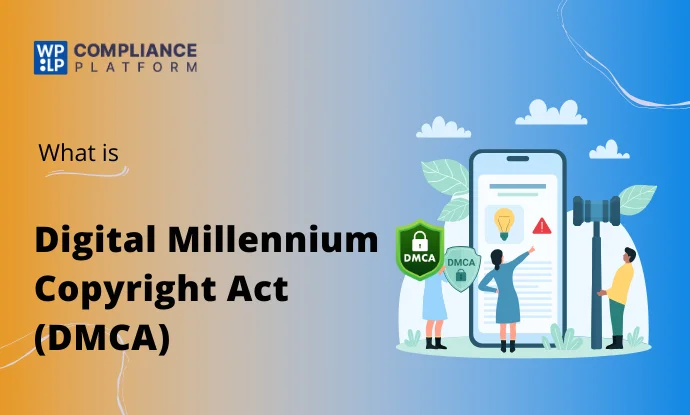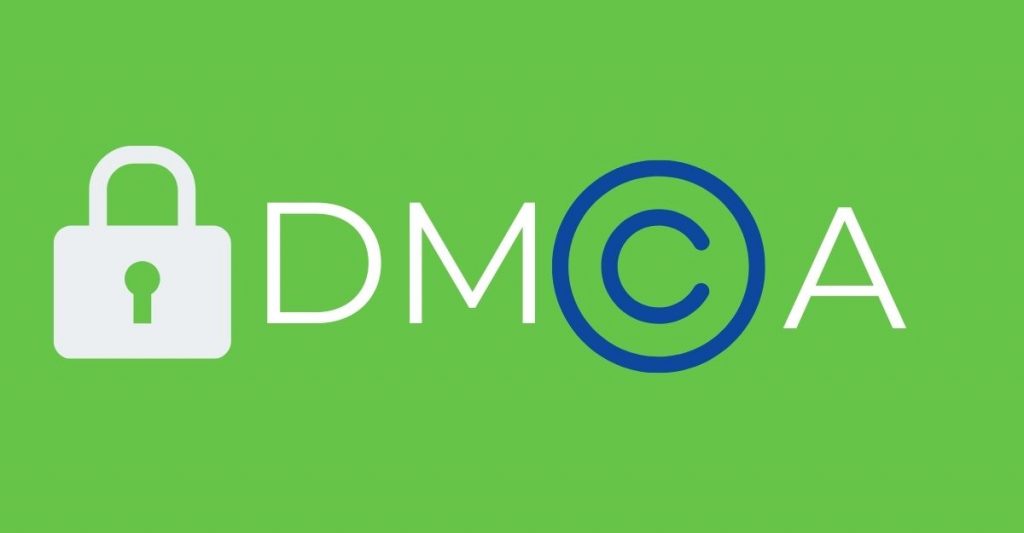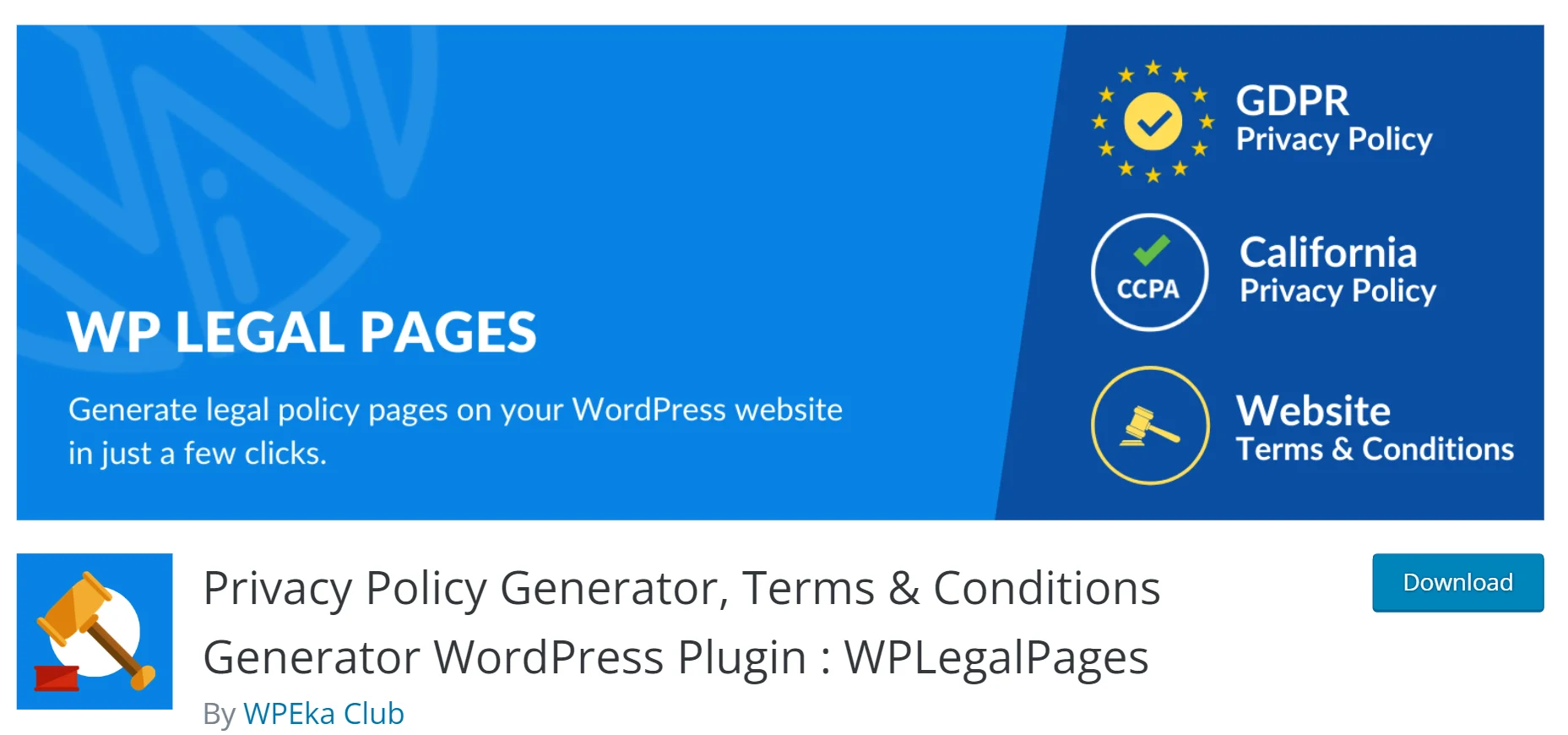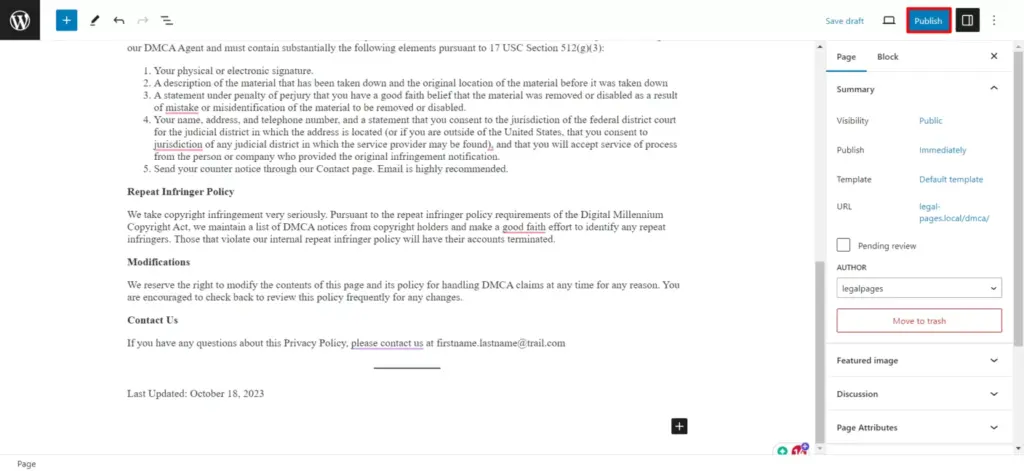Digital Millennium Copyright Act (DMCA) – Why is it important?

Summary
Our article explains its impact on website owners, covering compliance, copyright infringement, and DMCA policies.
Use WP Legal Pages to simplify your DMCA policy setup.
Are you aware of what a Digital Millennium Copyright Act (DMCA) is?
The Digital Millennium Copyright Act (DMCA) is a copyright law that was enacted in the United States in 1998 to address the challenges arising from the digital age.
The primary objective of the DMCA is to update and adapt copyright laws to the digital environment, safeguarding the rights of creative content while promoting innovation and creativity.
In this article, we will explain in detail about DMCA and how to create a notification using a DMCA policy generator.
- What is DMCA?
- What Are The Requirements of The Digital Millennium Copyright Act (DMCA)?
- Who Must Comply With The Digital Millennium Copyright Act (DMCA)?
- The DMCA and ‘Safe Harbor’ Exemptions
- How Does The Digital Millennium Copyright Act Work?
- Why is DMCA Law Important?
- What is a DMCA Takedown Notice?
- Introducing WP Legal Pages Plugin
- Conclusion
What is DMCA?

A US copyright law called the Digital Millennium Copyright Act (DMCA) aims to strike a balance between users’ and owners’ rights to digital media copyright.
It was passed in 1998 and put into effect in 2000 with the goal of modernizing American copyright laws to comply with the demands of two international treaties that the World Intellectual Property Organization (WIPO) had approved.
In order to claim their copyright and have infringing works deleted from a website, copyright holders can follow the reasonably simple structure provided by the DMCA. Additionally, it defines severe penalties for copyright violations.
All forms of content, including text, photos, music, and videos, are protected by the DMCA. However, as the DMCA is a US legislation, it is only applicable to US-hosted websites.
The DMCA can still protect the copyright holder, even if they are based outside of the country.
It is against the DMCA to create or distribute software or hardware that can be used to bypass copy protection laws.
What Are The Requirements of The Digital Millennium Copyright Act (DMCA)?
A few obligations under the DMCA include removing infringing content and responding to takedown notices. To ensure compliance with the DMCA, your company has to:
- Refrain from using or hosting any content that is protected by copyright laws without obtaining the necessary permissions or licenses.
- It is recommended to establish procedures for notice and takedown. These procedures help in removing infringing content from a website or platform.
- Takes immediate action against any content that infringes on intellectual property rights.
- It is important to have a Repeat Infringer Policy in place that can be reasonably enforced. (A repeat infringer is a user who has multiple copyright complaints lodged against their content within a given period of time)
Who Must Comply With The Digital Millennium Copyright Act (DMCA)?
If an online service provider (OSP) permits user-generated content, they should think about having a DMCA policy. By doing this, your company will be able to reduce its exposure to lawsuits for copyright infringement.
Any website, including search engines, content hosting sites, and internet service providers, that hosts user-generated content is considered an OSP under the DMCA.
You probably don’t need a DMCA Policy, for instance, if the sole original content on your website is either your own or written by writers you work with.
To safeguard yourself from content posted by users or other third parties, you must have a DMCA policy in place if any section of your website includes their content. If someone shares copyrighted content on your website, you could be held liable.
The DMCA and ‘Safe Harbor’ Exemptions
According to the “safe harbor” provisions of the DMCA, Online Service Providers (OSPs) are protected from liability under certain circumstances. If users of your website upload or transmit content that is protected by copyright, you will not be held responsible as long as you meet the safe harbor requirements and designate an agent with the U.S. Copyright Office.
The owner of copyrighted material has the right to file a complaint and initiate a lawsuit if they discover that someone is using their work without their consent. However, service providers enjoy protection from liability under the DMCA through an exemption provision.
How Does The Digital Millennium Copyright Act Work?
A copyright owner can send takedown notices to services or individuals distributing their copyrighted works using the DMCA. The service or individual, assuming a violation of their copyright, must comply with the takedown request or face legal action.
It acts as an anti-piracy enactment making it illegal to circumvent copy protection intended to prevent pirates from duplicating digital copyrighted works and selling or distributing them freely. In addition, according to the act, it would be illegal to manufacture or distribute tools or techniques for circumventing copy controls.
Why is DMCA Law Important?
The Digital Millennium Copyright Act (DMCA) is one of the most significant laws affecting the internet and technology today. Most of the services we rely on wouldn’t exist without the DMCA’s safe harbors from copyright liability.
That includes YouTube, Wikipedia, and your community blog. However, the DMCA has both supported private censorship and hindered privacy, security, and competition.
Purpose of the Digital Millennium Copyright Act
While it may seem complex, fulfilling the DMCA policy for your website is worth the time and resources you spend on it. This is because the DMCA law plays a significant role in supporting your business for the following reasons.
- Prevention of Stealing Content from Your Website:- You spent considerable time and money crafting a content-rich website with the help of WordPress experts. You hire the most reliable SEO agency to boost your website ranking. However, does your business hold a system to track, monitor, and resolve copyright infringement? If not, you should consider implementing one. This is because detecting copyright infringement cases as early as possible is necessary to maintain your competitive edge online. One main reason others steal content from your website is because of the high performance of your site from an SEO perspective. If they are copying from your site, it could result in a drop in your SEO rankings.
- Protect Yourself from Copyright Infringement:- Suppose you are running an eCommerce marketplace where others can market their products using your site. What would you do if a seller added a copied product image? Will you be accountable for it? This is another significant aspect of the DMCA. It can protect your business from copyright infringements and potentially expensive lawsuits.
What is a DMCA Takedown Notice?
A DMCA takedown notice is an official notification sent to the company, search engine, or web host notifying them that the material they are hosting infringes on a copyright. Sending a DMCA takedown notice is a procedure that anyone can do.
To have an infringing web page removed from a service provider’s network, the copyright owner must grant notice to the service provider with
- URL of the website where you found the copyrighted content, describe the content you believe is infringing and provide any other relevant information.
- Sufficient information to recognize the copyrighted works.
- Statement of the accuracy of the notice and, under penalty of perjury, that the accusing party is entitled to act on behalf of the owner.
Now that you know what copyright is and what is its importance. Let me introduce you to WP Legal Pages plugin, which helps to create a Cookie notice page for your website.
That can help you create a copyright notice for your website. The plugin will also help you with all the legal pages required for your website.
Introducing WP Legal Pages Plugin

WP Legal Pages is a one-stop shop for all your website’s legal needs, including crucial pages like DMCA notices, ensuring compliance with the law.
To ensure compliance with laws and standards, various legal documents are necessary in addition to the DMCA notice. Notice such as a legal disclaimer, terms and conditions, a privacy policy, and a cookie policy.
We suggest using the WP Legal Pages plugin to create a legal page for your website.
WPLegal Page is a plugin with a user-friendly interface that comes with a set of important features. You don’t have to be an expert in law to use the plugin. It also provides customization tools to help you tailor your copyright text to meet your unique needs.
Installing and Using WP Legal Pages
Let’s walk you through how to easily install and configure the WP Legal Pages plugin with this user-friendly guide.
From the WordPress Dashboard, select Plugins > Add New.

In the Search Bar, type WPLegalPages.

You can easily install WP Legal Pages by finding them in the search results and clicking the Install Now button.

Once the plugin is installed, activate the plugin by clicking the Activate button.

You’ve installed the plugin and can find it in your WordPress dashboard.

Click the Accept button to access the plugin settings and start creating your legal pages.

From the WPLegalPages menu, click the Create Legal Page button to create a new legal page.

Once you click the Create Legal Page button, you’ll be directed to the WPLegalPages setup wizard.

Now, select the DMCA template from the list of available templates to create a copyright notice.

Fill up your basic details and click the Next button when finished.

Your copyright notice template preview is now ready.

Next, click on the CREATE and EDIT button.

Make the necessary changes and click on Publish.

The copyright policy is now live on your website.
Conclusion
The Digital Millennium Copyright Act (DMCA) explains how technological advancements and intellectual property protection in the digital era. It was created to address the unique challenges of the virtual world by balancing the rights of authors.
It’s certain that conversations about the DMCA will continue as technology advances at an accelerated rate, pushing us to reconsider and modify how we interpret digital copyright. The DMCA notice has a tremendous influence on the digital landscape that will preserve the creativity of the owner.
We recommend using WP Legal Pages to create a DMCA notice for your website. The DMCA notice on your end will help to protect your website content from infringements.
I hope you enjoyed reading this article. Don’t forget to check our other engaging articles.
- The Ultimate Guide To Creating Medical Disclaimer Effortlessly
- Adding Impressum Page to Your Website Using WP Legal Pages
- What’s the ePrivacy Directive? Everything You Need to Know!
Are you excited to create legal pages for your website and gain the trust of your visitors? Grab WP Legal Pages now!It is against the DMCA to create or distribute software or hardware that can be used to bypass copy protection laws.It is against the DMCA to create or distribute software or hardware that can be used to bypass copy protection laws.
